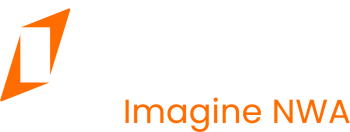Clear communication and strong documentation are two of the most effective tools a landlord can use—but they’re often overlooked until it’s too late. In Bentonville’s growing rental market, it only takes one misunderstood lease clause or forgotten maintenance request to strain your relationship with a tenant or even trigger legal action. Avoiding these pitfalls starts with structure. From the moment a tenant applies through the day they move out, every step of the leasing process should be clear, documented, and consistent. That's how you build long-term tenant satisfaction and protect your bottom line.
If you’re looking for added confidence when managing leases and tenant communication, explore the benefits of solid security deposit practices through this helpful resource.
Key Takeaways
- Conduct move-in inspections with photo documentation and tenant sign-off
- Automate rent collection to streamline payments and reduce friction
- Define responsibilities for maintenance, wear and tear, and guest rules
- Use consistent screening processes for every applicant
- Put all changes and agreements in writing
Prioritize Detailed Move-In Documentation
The best way to set expectations is before the tenant moves in. A thorough move-in inspection allows you to document the condition of the property and avoid confusion down the road.
Your checklist should include:
- A walkthrough with the tenant to verify the home’s condition
- A signed report detailing the state of floors, appliances, and fixtures
- Time-stamped photos or videos of every room
- Lease language defining “normal wear and tear” vs. tenant-caused damage
This upfront clarity not only reduces end-of-lease disputes but also shows your tenants that you take professionalism seriously.
Automate the Rent Collection Process
Manual rent collection can quickly turn into a point of stress for both landlords and tenants. Automating payments provides structure, convenience, and accountability.
Here’s how to set it up:
- Include lease terms that clearly state due dates, grace periods, and penalties
- Use an online platform that automatically sends reminders and processes payments
- Maintain a digital log of every transaction
With this approach, you not only eliminate excuses for late payments but also build a stronger case if legal action ever becomes necessary.
Stay Proactive with Maintenance Tracking
Ignoring maintenance requests or responding too slowly can escalate even minor problems. A structured system helps you respond quickly and show tenants that their needs are taken seriously.
Proactive steps include:
- Allowing tenants to submit repair requests through a portal
- Logging every request with dates, updates, and completion notes
- Performing seasonal or mid-lease inspections to prevent major issues
This strategy protects your investment and improves your reputation as a responsive landlord.
Create Firm Pet and Guest Policies
Bentonville’s rental market attracts families, professionals, and pet owners alike. Without clear rules about animals or overnight visitors, issues can spiral.
In your lease, define:
- What types and sizes of pets are allowed, along with deposits or monthly fees
- Guest limits, such as no overnight guests for more than 14 days in a 60-day period
- Penalties for unauthorized pets or long-term guests
Clarity here prevents unnecessary tension and keeps your property from being misused.
Prepare for Early Terminations
Even good tenants may leave before the lease ends due to job relocation or family changes. The key is having a plan outlined in the lease to protect your income.
Cover these basics:
- A clearly defined early termination clause with applicable fees
- A written notice requirement, typically 30–60 days in advance
- A statement that changes must be agreed upon and documented in writing
This foresight helps you secure a smooth transition and limits gaps in occupancy.
Define What Counts as Damage
One of the biggest sources of end-of-lease tension is whether something is considered damage or just wear and tear.
Make sure to:
- Include lease examples that distinguish between minor scuffs and real damage
- Take move-in and move-out photos for side-by-side comparison
- Perform mid-lease checks if needed.
Use Consistent Tenant Screening Practices
Inconsistent screening can lead to discrimination claims or poor tenant selection. A standardized process ensures fairness and protects your property.
Here’s how to structure it:
- Use written criteria for income, credit, and background
- Score each application using the same evaluation system
- Keep documentation of approvals and denials
If screening applicants feels overwhelming or time-consuming, it may be time to consider outsourcing your screening process.
Always Put Agreements in Writing
Verbal agreements and handshake deals can be easily forgotten—or denied. Protect yourself and your property by getting everything in writing.
Make it your policy to:
- Confirm all lease changes or requests via email
- Use lease addenda for adjustments like pet approvals or rent changes
- Keep digital records of all signed documents and communications
This not only helps in the event of a dispute but also makes management more efficient.
Handle Rent Increases with Professionalism
Raising rent is sometimes necessary, but how you communicate the increase can make a big difference in tenant retention.
Here’s what works best:
- Give 60 days’ written notice before the change takes effect
- Explain the reason behind the increase, such as property improvements or market adjustments
- Offer small value-adds, like appliance upgrades or flexible renewal options
A well-handled increase positions you as a professional, not just a price-hiker.
Spell Out Maintenance Responsibilities
It’s not always obvious who should handle what—especially with smaller repair tasks. Including clear expectations in the lease keeps everything organized.
Your lease should outline:
- Tenant duties like unclogging drains, replacing air filters, and lawn care
- Landlord duties like plumbing repairs, HVAC systems, and roof maintenance
- Emergency repair protocols and expected response times
If you're seeking an extra layer of protection during costly emergencies, learn more about our eviction protection plans.
A Lease Is Only as Strong as Its Systems
In Bentonville’s evolving rental landscape, having a signed lease isn’t enough. What really protects your property is the structure around that lease—detailed documentation, consistent processes, and smart tech integration. These aren’t just best practices—they’re your first line of defense against misunderstandings, missed payments, and legal trouble.
PMI Imagine NWA takes the guesswork out of property management with structured systems and expert leasing support. If you're ready to safeguard your rental property and enjoy a more reliable investment experience, learn more about our service guarantees and discover why so many Bentonville landlords trust us to protect their properties.
FAQs
What’s the most important part of the lease to clarify?
Defining responsibilities for maintenance, rent payments, and what counts as damage vs. wear and tear helps avoid the most common disputes.
Can I enforce a pet policy if I allowed a verbal agreement?
Verbal permissions are hard to enforce. Always document pet approvals in writing, including deposits or rent charges.
What are Bentonville’s notice requirements for lease termination?
While Arkansas law requires a 30-day notice for month-to-month leases, written agreements can specify longer notice periods for fixed-term leases.
Should I perform mid-lease inspections?
Yes, it helps identify maintenance issues early, ensures lease compliance, and provides updated documentation for the property’s condition.
Is tenant screening really necessary if I have a good feeling about an applicant?
Yes—gut instinct isn’t a substitute for credit, income, and background checks. Consistency keeps your rental business legally compliant and financially secure.



